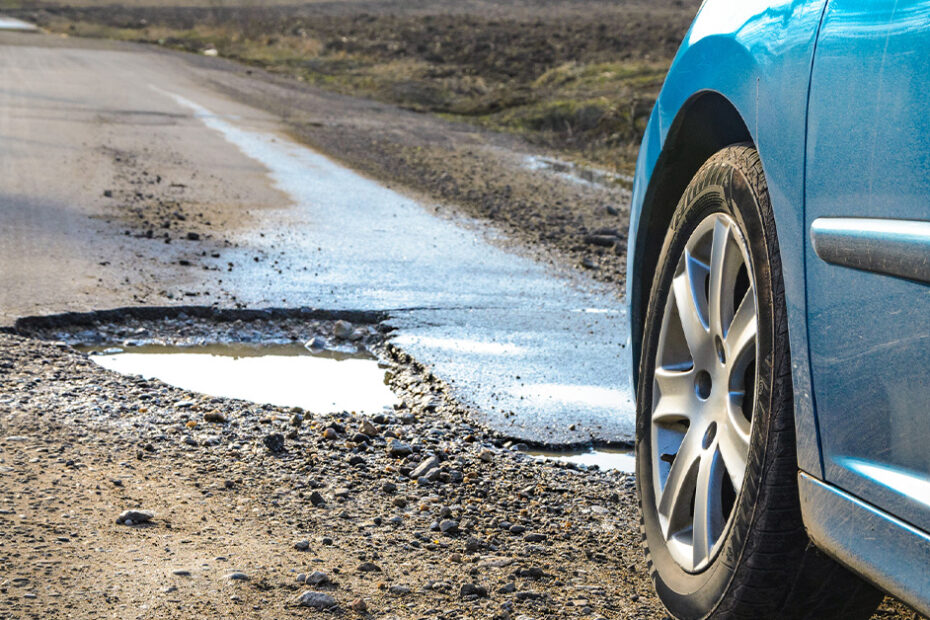If you’re an experienced driver, you’ve likely experienced how different road conditions can affect vehicle performance. From smooth highways to pothole-ridden streets, the surface beneath your tires determines your car’s handling, fuel efficiency, and long-term durability.
There’s an elaborate relationship between road conditions and vehicle performance. Whether you have a compact sedan or a sturdy SUV, understanding this connection will help you adapt your driving habits and ensure your vehicle stays in optimal shape for as long as possible.
The Relationship Between Road Surfaces and Vehicle Wear

Rough or poorly maintained roads, like those with cracks or potholes, increase stress on your car’s components. This can prompt premature friction-induced wear and tear on everything from shock absorbers to the suspension system and your tires. In 2022, 562 people died in tire-related crashes.
Your car operates efficiently when you are driving on a well-maintained road. Smooth surfaces minimize the strain on your drivetrain and tires, allowing your vehicle to move without much resistance. The less effort your car puts into navigating bumps, cracks, and potholes, the better it will perform over time. This results in better fuel efficiency and less wear and tear on your car’s critical components.
Rough roads are a different story. Uneven surfaces can wreak havoc on your vehicle’s alignment and suspension system. Over time, the constant jostling can lead to uneven tire wear, compromised steering control, and damage to essential components, increasing potential repair costs.
Weather Conditions and Vehicle Performance
Weather impacts road conditions and, by extension, vehicle performance. Rain and snow make roads slippery, reducing tire traction and making driving conditions hazardous. The risk becomes higher if your car’s tires are worn out.

Wet conditions make it more difficult for tires to grip, affecting braking distances and handling. In areas with heavy rainfall, poorly drained roads can cause hydroplaning, which is when your car “floats” on a layer of water. This causes little contact with the road surface and leaves you with little to no steering control.
In winter, ice and snow further complicate driving. When temperatures drop, road surfaces may freeze, making them slick and dangerous. Even vehicles with advanced traction control systems or all-wheel drive may struggle in icy conditions. Snow and ice also conceal road imperfections like potholes and cracks. Catching one of these off-guard will result in sudden jolts that can damage your suspension or alignment.
Conversely, hot weather causes asphalt to soften to the point of becoming malleable, resulting in uneven driving surfaces. Additionally, your engine will likely overheat more quickly, especially during long drives in hot conditions, thus affecting overall vehicle efficiency.
Off-Road Driving Considerations

Unpaved roads and rugged terrain present unique challenges for those who enjoy off-road driving or live in rural, undeveloped areas. Off-road conditions, such as gravel, dirt, and rocky surfaces, put more demand on the engine, suspension, alignment, handling, and tires. Driving on uneven or loose terrain also increases the likelihood of losing control, especially at higher speeds, due to the loss of traction between the wheels and the road.
Specialized off-road tires and suspension systems can mitigate some of these issues, but they come at an added cost. The increased wear from off-road conditions also shortens the life span of critical components such as brakes and axles, increasing the frequency of repairs and replacements. Regular inspections and maintenance become even more essential to avoid unexpected breakdowns if you frequently drive on such roads.
Adapting Your Driving to Road Conditions
Being aware of how different road conditions impact your vehicle can help you adapt and prolong the life of your car. Here are a few tips to consider:
- Drive cautiously on rough roads: Slow down when navigating uneven surfaces to minimize the impact on your suspension and tires.
- Perform regular maintenance: Regularly check your suspension system, alignment, and tire pressure to ensure your car is in optimal shape to navigate any road conditions.
- Prepare for weather changes: If you live in an area with extreme weather conditions, consider how the road materials affect your vehicle and plan accordingly. Winterize your car when temperatures plummet to avoid being among the 21% of weather-related crashes. Also, be mindful when driving on asphalt roads if your region experiences constant high temperatures or during summer.
Stay Safe on the Road
Being mindful of the road conditions around you and adjusting your driving habits accordingly can ensure your vehicle performs at its best, no matter what surface you’re driving on. To learn more about how AIS can help keep you covered on the road, give us a call at (888) 772-4247 or start a new quote online.
Jack Shaw, the senior Cars editor of Modded, is an accomplished automotive writer with a flair for adventure and a passion for vehicular innovation. Having written for notable sites such as the National Motorists Association, Ford Muscle, Offroad Xtreme, and more, his articles are a testament to his knowledge and love for the automotive industry.


